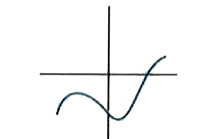What is the zero of the polynomial p(x)=xn−12x−1, where n is a natural number and x≠0 ?Solution in Bengali
Step by step video & image solution for What is the zero of the polynomial p(x)=(x^(n)-1)/(2^(x)-1), where n is a natural number and xne0 ? by Maths experts to help you in doubts & scoring excellent marks in Class 9 exams.
Updated on:21/07/2023Topper's Solved these Questions
- POLYNOMIALSBOOK - CALCUTTA BOOK HOUSECHAPTER - POLYNOMIALSEXERCISE - EXERCISE-1.3
36 Videos
- POLYNOMIALSBOOK - CALCUTTA BOOK HOUSECHAPTER - POLYNOMIALSEXERCISE - EXERCISE-1.4
52 Videos
- POLYNOMIALSBOOK - CALCUTTA BOOK HOUSECHAPTER - POLYNOMIALSEXERCISE - EXERCISE-1.1
57 Videos
- LOGARITHMBOOK - CALCUTTA BOOK HOUSECHAPTER - LOGARITHMEXERCISE - Exercise - 7 (Long-answer type questions)
49 Videos
- PROBABILITYBOOK - CALCUTTA BOOK HOUSECHAPTER - PROBABILITYEXERCISE - EXERCISE - 2
16 Videos
Similar Questions
Which one of the followings is an identity ?
View SolutionIf p(x) be a polynomial such that p(−ab)=0, then one of the factor of p(x) is
View SolutionIf n be a whole number and a0,a1,a2,..............,an(an≠0) are constants, then the polynomial p(x)=anxn+an−1xn−1+.............+a1x+a0 will be a zero polynomial, when
View SolutionCalculate :
(i) log24√643√4−1(8)−43
View SolutionDefine with examples :
Event.
View SolutionProve that (1+x)n≥(1+nx),for all natural number n, where x≻1.
View Solutionयदि A={x:x=3n+1,2≤n<6} जहाँ n एक प्राकृतिक संख्या है ,तो A के उपसमुच्चयों की संख्या है
View SolutionIf n be a whole number and a0,a1,a2,..............,an(an≠0) are constants, then the polynomial p(x)=anxn+an−1xn−1+.............+a1x+a0 will be a zero polynomial, when
View SolutionFind the zeroes of the polynomial p(x)=x2−(a+1a)x+1.
View Solutionबहुपद p(x) का शून्यक, p(x)=ax+1 जहा है, a≠0 है -
View SolutionThe number of elements of the set {x:X∈N,x2=1} where N is the set of all natural numbers is :
View SolutionProve that (1+x)n≥(1+nx) for all natural number n where x>−1
View SolutionProve that (1+x)n≥(1+nx) for all natural number n where x>−1
View SolutionProve that (1+x)n≥(1+nx) for all natural number n where x>−1
View SolutionThe graph ofy = P(x) are given in Fig. 1, where P(x) as polynomial. Find the number of zeros of P(x)

View Solution
